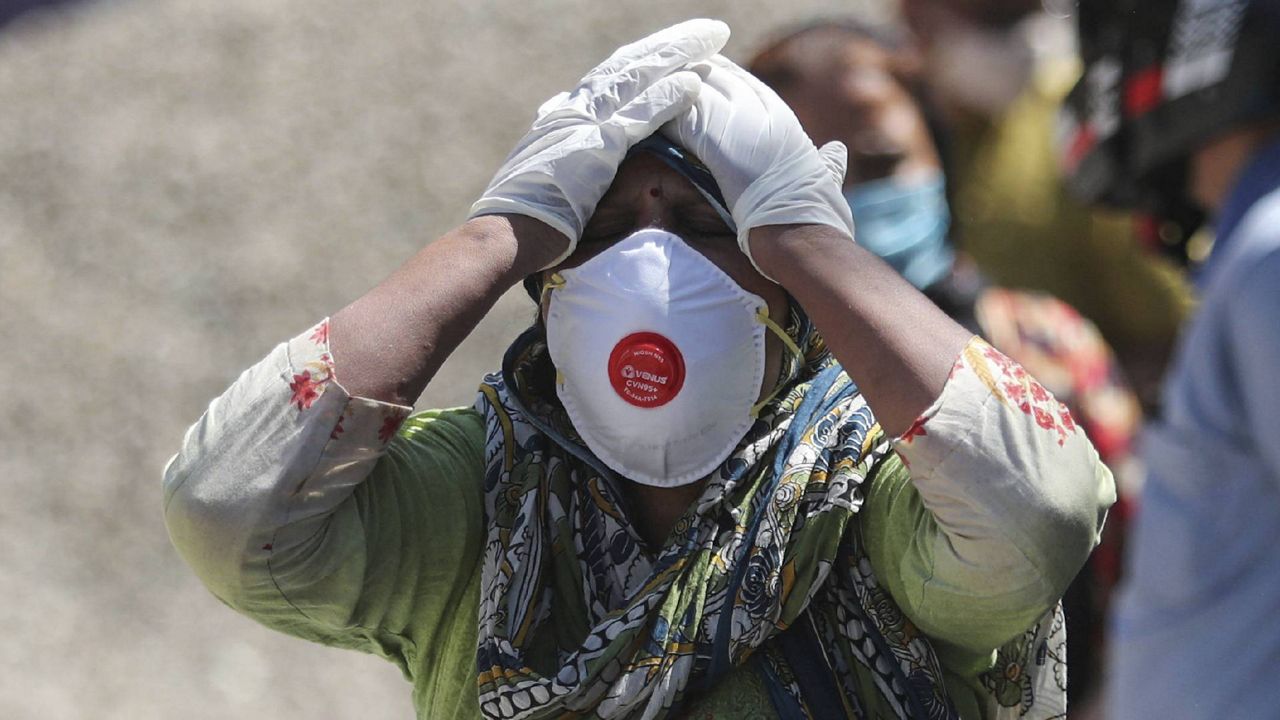The United States will send vaccine materials, personal protective equipment, tests and therapeutics to India, officials announced Monday, as the country faces a record surge in COVID-19 cases and deaths and hospitals run out of critical life-saving care.
The U.S. will also dispatch a Centers for Disease Control and Prevention “strike team” to the country, a senior administration official said, which will include public health experts who will work with India's health ministries and officials.
The country reported another 350,000 cases of the virus on Monday, a world record. Oxygen is scarce and intensive care units are overwhelmed.
As the death toll mounts, the night skies in some Indian cities glow from the funeral pyres, as crematories are overwhelmed and bodies are burned in the open air.
Earlier Monday, President Joe Biden spoke with Indian Prime Minister Narendra Modi and “pledged America’s steadfast support” for the people of India, according to a White House readout of the call.
To start, the U.S. is first deploying shipments that include rapid diagnostic tests, personal protective equipment, such as masks, and doses of the antiviral treatment remdesivir, which former President Donald Trump received when he was diagnosed with COVID-19.
The U.S. will also make available the raw materials needed to make India’s version of the AstraZeneca vaccine, Emily Horne, spokesperson for the National Security Council, said in a statement Sunday.
The United States was under pressure to allow the export of those vaccine materials, which were essentially blocked due to restrictions on manufacturers under the Defense Production Act.
Adar Poonawalla, the head of the Serum Institute of India, the world’s largest vaccine-maker, has directly called on the president on Twitter to allow the export of those materials, especially since the U.S. hasn’t yet approved the AstraZeneca vaccine.
“If we are to truly unite in beating this virus, on behalf of the vaccine industry outside the U.S., I humbly request you to lift the embargo of raw material exports out of the U.S. so that vaccine production can ramp up,” he wrote.
On Monday, officials said the U.S. is next working on how to send oxygen and related supplies to the country, one of the things that India’s hospital most needs.
“We may be in a position to reroute shipments planned for other countries with lower immediate needs, given the urgency of the conditions in India,” White House Press Secretary Jen Psaki said in a Monday briefing.
“We're also exploring options to provide oxygen concentrators and ventilators and are in technical discussions with India to ensure that the equipment we supply can connect to Indian devices,” she added.
On Monday, India reported 2,812 more deaths, with roughly 117 Indians succumbing to the disease every hour — and experts say even those figures are probably an undercount. The new infections brought India’s total to more than 17.3 million, behind only the United States.
Earlier in the day, the White House also announced it would begin sharing doses of the AstraZeneca vaccine once they undergo a safety check with the Food and Drug Administration.
“We do not need to use the AstraZeneca vaccine here during the next few months,” a senior administration official told reporters.
The U.S. could end up sharing as many as 60 million doses in the next few months, once they undergo safety checks.
The Associated Press contributed to this report.



